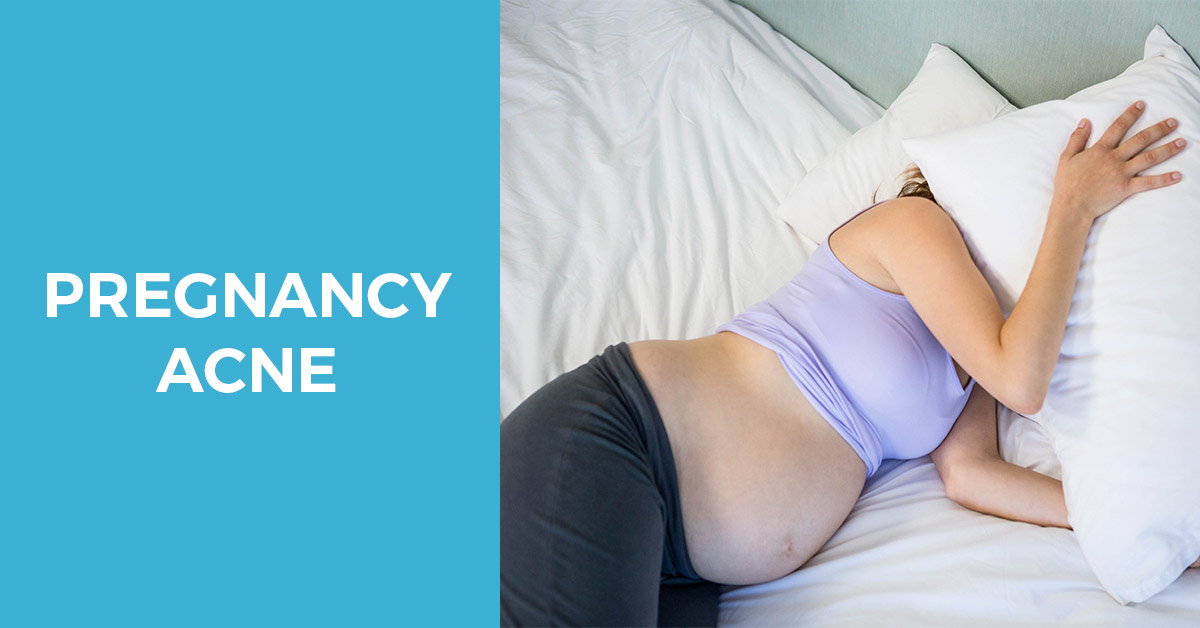Contents
If you’re experiencing acne during your pregnancy, you’re not alone. In fact, over half of women who fall pregnant can expect to experience some form of acne. In some cases, this acne can be quite severe.
Pregnancy acne can often occur when you already have spots, and could make it worse. However, some women who are prone to breakouts actually find their skin clears up to some extent while they’re pregnant.
If you are suffering from some form of breakout while you’re pregnant, you’re probably wondering what treatments are safe, which is why this article will explore this in depth. We’ll also tackle some frequently asked questions and the causes of pregnancy acne.
Causes of pregnancy acne
One of the most common questions people ask is, “Can acne be a sign of pregnancy?” And the answer is – yes (although, it is a less common sign).
During your first trimester, your hormone levels are increased dramatically, and this is the primary cause of acne. Therefore, you might experience an acne breakout around the 4th of 5th week of your pregnancy, which could be before you’ve missed your period.
The hormones that are produced in higher amounts are called androgens and they can prompt your skin’s sebaceous glands to get bigger. These glands are responsible for producing sebum, an oily substance that keeps your skin hydrated. However, because these glands have grown in size, the production of sebum goes into overdrive.
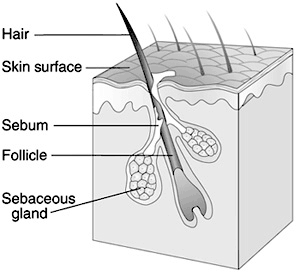
This creates a combination of lots of extra oil and much larger pores. These large pores are far more likely to become blocked with dead skin cells, oil, and dirt. Therefore, your skin becomes at risk of developing bacterial infections, which result in inflamed areas, spots, and bumps.
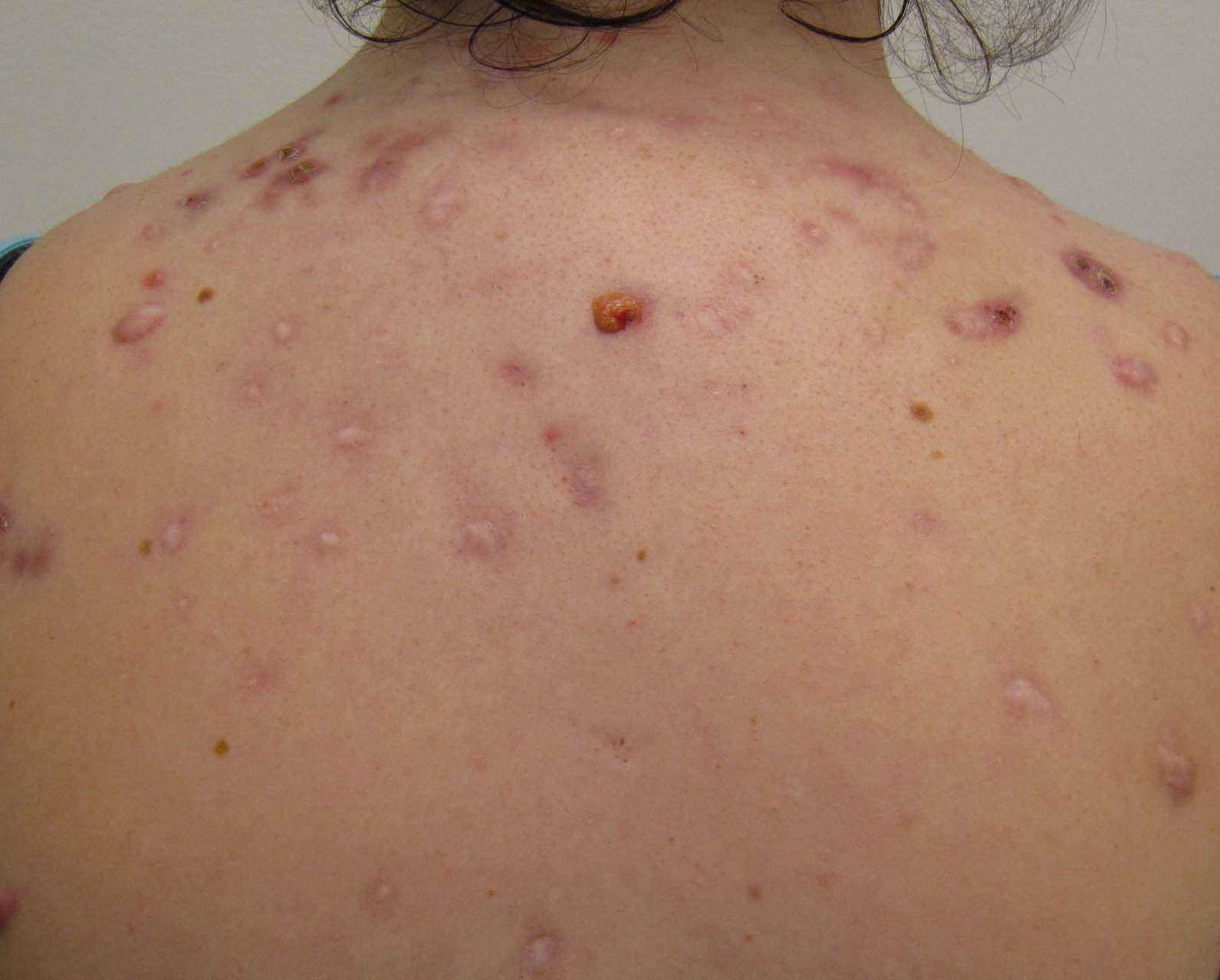 A lot of cases of acne occur on the face, but body acne during pregnancy is also common. You may find acne appears on your neck, chest, back, and maybe even your scalp. In rarer cases, some pregnant women will develop cystic acne, which can be incredibly painful.
A lot of cases of acne occur on the face, but body acne during pregnancy is also common. You may find acne appears on your neck, chest, back, and maybe even your scalp. In rarer cases, some pregnant women will develop cystic acne, which can be incredibly painful.
Am I at Risk of Developing Pregnancy Acne?
It’s hard to tell whether you’ll develop pregnancy acne or not because each case is completely different. However, if, at the start of your menstrual cycle you tend to have an acne flare up, or you’ve had a history of acne, you are more likely to develop pregnancy acne.
Should you find that you haven’t had a breakout during your first trimester, it’s highly likely you won’t have any out-of-the-ordinary breakouts during your second and third trimesters.
TIP: Check out our comprehensive guide – how to get rid of acne!
While you’re pregnant, coping with acne can be difficult. That’s because, a lot of the over-the-counter treatments and prescription medications available aren’t suitable for pregnant women. This is due to the fact they present a high risk of your baby developing birth defects. Therefore, you should avoid any medication that could potentially harm your baby, even if the chances are very slim.
Treating pregnancy acne
Pregnancy acne is a completely natural side-effect to being pregnant (along with many others!), and you’ll usually find that it subsides when your hormones return to their normal levels. That’s why it’s highly recommended that you avoid any medical treatments, opting for drug-free home remedies instead.
However, before you start acne treatment during pregnancy, you should speak to your doctor first to find out what solution is best for you and your baby. You might also want to check out this YouTube video by Dr. Jeff Benabio who discusses the safe ways to treat acne while pregnant.
Isotretinoin
The treatment of severe acne has been revolutionized by the oral drug, isotretinoin. However, when you’re pregnant, it’s particularly dangerous because the medication can cause serious birth defects.
Any patient who is provided with isotretinoin, along with the pharmacist who dispenses it and the doctor who prescribes it, has to enroll in a program that’s been put in place to manage the risks it poses. This helps to prevent birth and pregnancy defects.
Due to the high-risk factor involved in this medication, any woman taking it who is of childbearing age must have been on two forms of birth control at least a month before they start taking the drug. After the therapy has ended, they must remain on these birth controls for one month, at least. Before, during, and after the treatment, these women will also have regular pregnancy tests.
Topical Retinoids
These include tretinoin (Retin-A), tazarotene (Tazorac), and adapalene (Differin). These should be completely avoided during pregnancy, just as isotretinoin should be. That’s because, even though studies show that only a small about of these treatments are absorbed through the skin, the risk of birth defects can still be increased. These products carry the necessary warnings, stating that the harm the medication can do to an unborn fetus or a breastfed child is currently unknown. Therefore, they are best avoided.
Oral Tetracyclines
This refers to antibiotics, such as minocycline, doxycycline, and tetracycline, as they can discolor a baby’s permanent teeth and may inhibit bone growth.
Hormone Therapy
This includes the antiandrogens, spironolactone and flutamide, as well as the female hormone, estrogen.
Salicylic Acid
This is contained in many over-the-counter treatments for acne, and for similar reasons listed to those above, many healthcare professionals recommend against its use during pregnancy.
Are There Any Topical Acne Treatments I Can Use During Pregnancy?
There are some topical prescription products that various experts will recommend, including azelaic acid and erythromycin. Other options are glycolic acid or benzoyl peroxide products that are often available over the counter. Due to the fact the body only absorbs around 5% of these active medications, they aren’t thought to pose a higher risk to your baby developing birth defects.
Nevertheless, it’s worth remembering that not much research has been done on topical medications and pregnancy. Therefore, before you start any acne treatment during pregnancy, you should speak to your doctor.
Drug-free treatments for pregnancy acne
Unfortunately, there’s nothing you can do to prevent pregnancy acne entirely. However, there are some natural and easy steps you can take in your daily routine to reduce your risk of breakouts.
1. Gently Cleanse Problem Areas
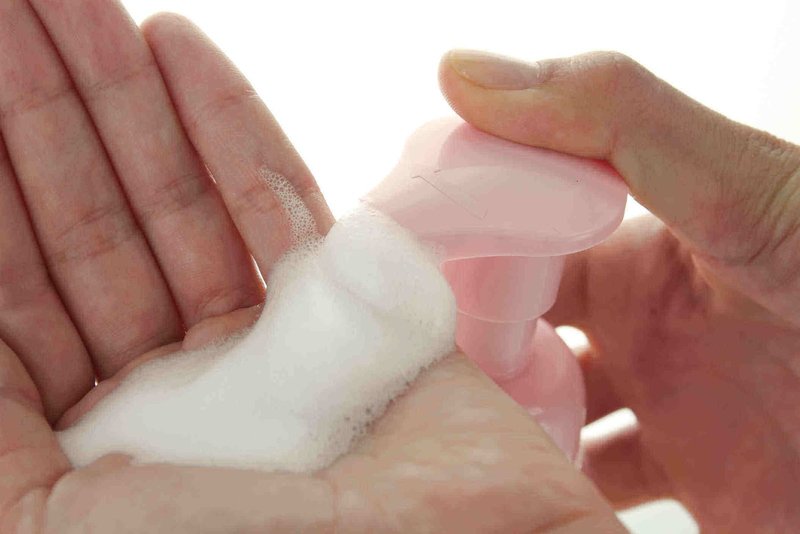
Limit washing your face to twice a day (or after you’ve been sweating) and opt for warm (not hot) water and a gentle cleanser that’s alcohol- and oil-free. Your cleanser shouldn’t contain any exfoliants either, as these can irritate the skin that’s already been inflamed by your acne. Excess scrubbing and washing can also irritate your skin, so treat it with care and wash with your hands rather than a washcloth.
2. Avoid Things that Will Irritate Your Skin
Try to avoid hairstyling products, sunscreens, or cosmetics that are greasy or oily. These can add to your acne by clogging up your pores and increasing the amount of oil that’s on your skin. Therefore, try to find products that are labeled as being noncomedogenic (won’t block your pores) or water-based.
3. Be Careful About What Touches Your Skin
Sweat and oils can increase your pregnancy acne, which is why you’ll want to monitor what’s touching your skin. Keep your hair away from your face and make sure it’s washed regularly, and avoid resting objects (e.g. cell phones) or hands on your face. If you’re sweating, be wary of hats or tight clothing because these can add to the problem.
4. Shampoo Regularly
Keeping your hair clean is particularly important if you develop acne along your hairline. If you do (or you’ve got oily skin in general), try to shampoo every day and avoid putting pomade or oily mousse near your hairline.
5. Don’t Over Cleanse
Even though it’s important to keep your skin clean, you can go too far. By over-cleansing your skin you can cause it to dry out, which can stimulate your oil glands into action. They’ll start to produce more oil to counteract the dryness, making your pregnancy acne worse.
6. Keep Your Sheets and Towels Clean
Try to wash your pillowcases and sheets as frequently as possible as this will help reduce your risk of a bacterial infection. You should also wash your towels as often as you can, too, for exactly the same reason.
7. Don’t Squeeze or Pick Spots
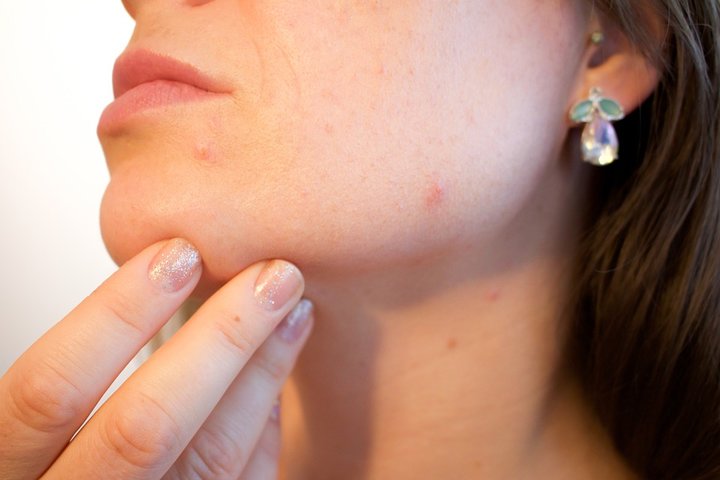 As tempting as it may be to squeeze your spots, especially when one’s got a big, juicy whitehead on it, this will only worsen the problem. It can inflame your skin even further and could lead to a permanent scar.
As tempting as it may be to squeeze your spots, especially when one’s got a big, juicy whitehead on it, this will only worsen the problem. It can inflame your skin even further and could lead to a permanent scar.
8. Use Oil-Free Makeup
If you do wear makeup during your pregnancy, try not to clog your skin’s pores by using an oil-free concealer and foundation. Water-based makeup is great, as is makeup that’s labeled as being noncomedogenic. Make sure you thoroughly remove this makeup at night before you go to bed.
9. Use Sunscreen
Opt for a sunscreen that has Sun Protection Factor (SPF) and protects your skin from harmful rays (UVA and UVB protection). Ideally, choose a protection that has SPF 30 or more because this will help protect your skin from some of the pigmentary changes (affecting the color of your skin) that can sometimes happen during pregnancy. Physical sun blockers that contain titanium or zinc are ideal.
Post-Pregnancy Acne Treatment
Once your baby has arrived, you may still have some acne that you’re trying to deal with. However, it’s important you continue to remain as vigilant with the medications you’re using, especially if you’re breastfeeding.
As a rule of thumb, any medication that was deemed safe to use during your pregnancy will be safe to use post-pregnancy. But it’s always a good idea to double- and triple-check with your doctor before using.
Equally, if you are breastfeeding, you should avoid any of the medications that were ruled harmful during your pregnancy. These are medications placed in Category C or above by the FDA, who also offer more advice on pregnancy and medication. Furthermore, pediatricians will often have their own lactation ratings for particular treatments and medications.
CONCLUSION
If you are concerned about your pregnancy acne or you want to find a safe acne treatment during pregnancy, it’s a good idea to consult your doctor and/or dermatologist. They’ll be able to provide you with the best advice for your skin, giving you peace of mind that you’re treating your pregnancy acne while taking care of your unborn baby in the process.

